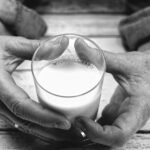[ad_1]
Introduction
When it comes to building muscle, most people focus on training and nutrition—lifting heavy weights and consuming enough protein. However, one crucial factor often overlooked is sleep. Quality sleep is essential for muscle repair, growth, and overall recovery. Without adequate rest, even the most disciplined workout and diet plan can fall short.
How Sleep Supports Muscle Growth
1. Hormonal Balance: Growth Hormone & Testosterone
During deep sleep (especially slow-wave sleep), the body releases growth hormone (GH), which plays a key role in muscle repair and protein synthesis. Additionally, sleep helps maintain testosterone levels, a hormone critical for muscle growth. Poor sleep can lead to reduced GH secretion and lower testosterone, hindering progress.
2. Protein Synthesis & Muscle Recovery
Muscle growth occurs when protein synthesis exceeds protein breakdown. Sleep enhances this process by:
- Reducing cortisol (stress hormone), which can break down muscle tissue.
- Improving nutrient utilization, allowing amino acids to be used more efficiently for repair.
3. Energy Restoration & Performance
Sleep replenishes glycogen stores, the primary energy source for intense workouts. Without enough rest, fatigue sets in, leading to weaker lifts and slower progress.
Consequences of Sleep Deprivation on Muscle Growth
- Increased muscle breakdown (catabolism)
- Reduced strength and endurance
- Higher injury risk due to poor recovery
- Impaired cognitive function, affecting workout focus
How Much Sleep Do You Need?
For optimal muscle growth and recovery, aim for:
- 7–9 hours per night (athletes may need closer to 9)
- Consistent sleep schedule (going to bed and waking up at the same time)
Tips for Better Sleep & Muscle Recovery
- Prioritize Sleep Like Training – Treat it as part of your fitness routine.
- Avoid Caffeine & Heavy Meals Before Bed – These can disrupt deep sleep.
- Create a Dark, Cool Sleep Environment – Ideal for melatonin production.
- Limit Screen Time Before Bed – Blue light suppresses sleep hormones.
- Consider Naps – Short naps (20–30 min) can aid recovery if nighttime sleep is insufficient.
Conclusion
Sleep is not just downtime—it’s active recovery for your muscles. Without enough rest, your hard work in the gym won’t translate to optimal gains. By prioritizing sleep alongside training and nutrition, you’ll maximize muscle repair, strength, and overall performance.
Sleep well, grow stronger! 💪😴
[ad_2]






